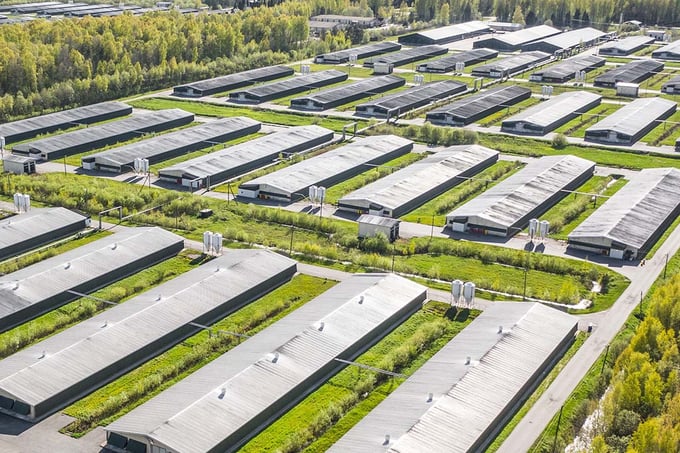November 28, 2025 | 02:52 GMT +7
November 28, 2025 | 02:52 GMT +7
Hotline: 0913.378.918
November 28, 2025 | 02:52 GMT +7
Hotline: 0913.378.918
The approach will be similar to the one existing in the pig industry, where it has proved its value in combating African Swine Fever.

Russian authorities have published a draft decree under which the compartmentalisation system will be put in place on 1 March 2025. Photo: Canva
Russian authorities have published a draft decree under which the compartmentalisation system will be put in place on 1 March 2025, to be valid at least through 1 March 2031. Similar to the pig industry, the plan envisages dividing all poultry farms into 4 categories, or compartments, depending on their level of biological protection. Compartments 1 and 2 are assigned to farms with a low or poor level of biological protection, while compartment 3 is to farms with a standard protection level.
Almost all Russian industrial pig farms have compartment 4, indicating they comply with the strictest veterinary rules. Its main advantage is that it allows pig farms located in a territory affected by ASF to continue selling products outside the region, even overseas.
It is expected that the poultry farms with the highest compartment will be eligible to continue poultry exports even appearing in the quarantine zone, providing that bird flu is not registered at the facility. In the decree’s explanatory note, the Russian Agricultural Ministry claimed that the compartment system would secure trade advantages for the Russian poultry industry.
The Ministry said, “[These will involve] simplified export procedures, improving the epizootiological situation at poultry farming facilities, and ensuring the veterinary safety of poultry products.”
The draft regulation indicates how the owner can apply for inspection of poultry production facilities to determine their animal health status. The authorities revealed that the Russian veterinary agencies would carry out the inspection free of charge.
Russian poultry farms asked the Russian veterinary watchdog Rosselhoznadzor to introduce the compartmentalisation system, Sergey Dankvert, head of Rosselhoznadzor, disclosed in April 2023. He also criticised the way the veterinary system is organised at Western poultry farms.
“Those losses [due to bird flu] they suffer in Europe, America, even Japan are predictable because they opted for not strengthening biological protection, or, as we name it, compartmentalisation, but follow the green path – that the birds need to walk, breathe fresh air and not to live in cages,” Dankvert stated at that time.
(PW)

(VAN) A new study reveals how the simultaneous effects of ocean acidification, salinity and loss of oxygen are making the world more fragile.

(VAN) Hopes are growing that the creation of the first 3D turkey gut model could be a turning point in the battle against the virulent blackhead disease.

(VAN) Tyson, America’s biggest meat supplier, plans to shutter one of its largest beef processing plants as the industry continues to struggle with low cattle supplies and political pressure from Washington.

(VAN) New FAO study shows how digital solutions are empowering farmers and fishers to prevent losses and build resilient agrifood systems.

(VAN) Brazil's COP30 presidency pushed through a compromise climate deal on Saturday that would boost finance for poor nations coping with global warming but that omitted any mention of the fossil fuels driving it.

(VAN) Poultry farmers in the UK have been warned that they could face one of the worst winters yet for bird flu.

(VAN) Prices of main-crop paddy have risen sharply, with jasmine rice hitting 16,100 baht per tonne — the highest level in years.